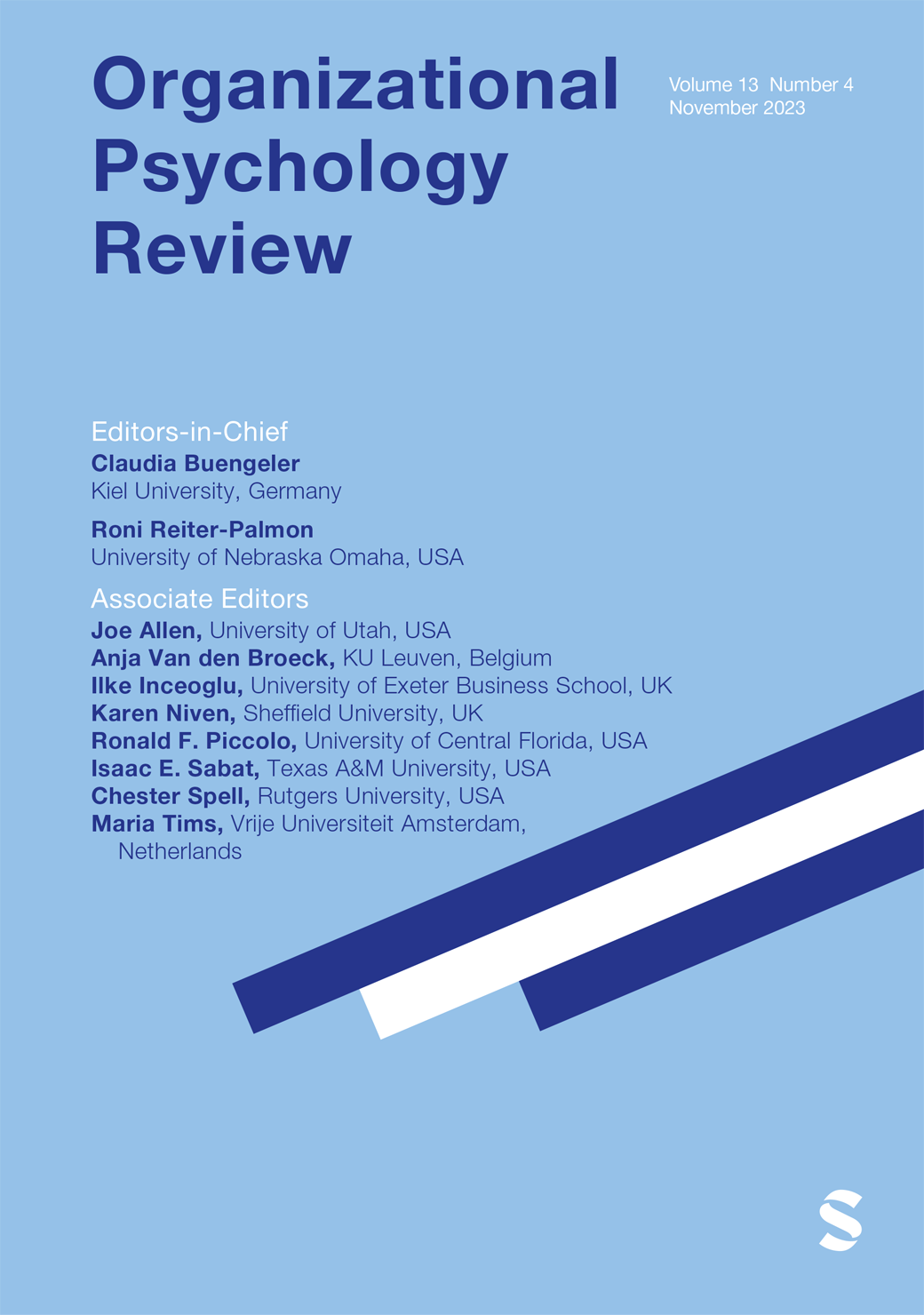寻求帮助的嘈杂理论解释了为什么许多人对他们得到的帮助感到不知所措
IF 7.1
1区 心理学
Q2 MANAGEMENT
引用次数: 1
摘要
员工经常觉得他们在工作中得到的帮助是不够的。鉴于之前的研究通过引用刻板印象或不良沟通来解释这一实证发现,我们提出了一种不依赖于有偏见的代理人的替代方案:对所获得的帮助的失望可能是由于自我选择和回归均值而产生的。在寻求帮助之前,员工会评估他们的同事是否有时间和能力做出回应。与回归均值一致的是,极端的信念往往伴随着不那么极端的结果。然而,信念膨胀的员工比信念低或适度的员工更有可能寻求帮助。因此,采取行动的员工会有过于乐观的期望,一旦同事做出回应,这种期望就不太可能实现。除了挑战传统智慧之外,本文还将机会和自我选择的观点整合到正在进行的寻求帮助的对话中。讨论了对未来研究、理论和实践的启示。这篇文章提出了一个理论来解释以下经验规律:员工经常对他们在工作中得到的帮助感到失望。先前的研究通过参考沟通或认知中的错误来解释这种效应。我们提出了一种简单的替代机制,这样,认知偏差或沟通失误就不需要出现这种模式。假设员工是基于同事潜力的嘈杂信号来寻求帮助的,也就是说,他们认为同事是否有动力和能力来解决问题。认为潜力高的员工比认为潜力低的员工更有可能寻求帮助。由于回归均值,极端的信念之后可能会得到不那么极端的帮助(在任何方向上)。但并不是每个员工都需要帮助。只有那些信心足够高的员工才会提出要求,而这些员工更有可能持有过高的评估。那么,在那些请求帮助的人当中,得到的帮助将显得平淡无奇。除了挑战传统智慧之外,本文还将机会和自我选择的观点整合到正在进行的寻求帮助的对话中。讨论了对未来研究、理论和实践的启示。本文章由计算机程序翻译,如有差异,请以英文原文为准。
A Noisy Theory of Asking for Help That Explains why Many Feel Underwhelmed With the Help They Receive
Employees often feel that the help they receive at work is inadequate. Whereas previous research explains this empirical finding by referencing stereotypes or poor communication, we suggest an alternative that does not rely on biased agents: disappointment with received help may arise due to self-selection and regression to the mean. Before asking for help, employees assess whether their co-workers have the time and ability to respond. Consistent with regression to the mean, extreme beliefs are often followed by less extreme outcomes. However, employees with inflated beliefs are more likely to ask for help than employees with low or modest beliefs. Therefore, the subset of employees who act will have overly optimistic expectations, expectations that are unlikely to be met once co-workers respond. Apart from challenging conventional wisdom, this article also integrates chance and self-selection perspectives into the ongoing dialogue of help-seeking. Implications for future research, theory, and practice are discussed. This article presents a theory explaining the following empirical regularity: employees often feel let down with the help they receive at work. Prior research explains this effect by referencing errors in communication or cognition. We propose a simple, alternative mechanism, such that cognitive biases or communication mishaps need not be present for the pattern to emerge. Suppose employees ask for help based on a noisy signal of colleague potential—that is, a perception of whether co-workers have the motivation and ability to resolve the issue. Employees who believe potential is high will be more likely to ask for help than employees who believe potential is low. Due to regression to the mean, extreme beliefs will likely be followed by less extreme received help (in either direction). But not every employee asks for help. Only those with sufficiently high beliefs send a request—and it is those employees who have a greater chance of holding inflated assessments. Among those who ask, then, received help will appear underwhelming. Apart from challenging conventional wisdom, this article also integrates chance and self-selection perspectives into the ongoing dialogue of help-seeking. Implications for future research, theory, and practice are discussed.
求助全文
通过发布文献求助,成功后即可免费获取论文全文。
去求助
来源期刊

Organizational Psychology Review
Multiple-
CiteScore
10.00
自引率
1.60%
发文量
25
期刊介绍:
Organizational Psychology Review is a quarterly, peer-reviewed scholarly journal published by SAGE in partnership with the European Association of Work and Organizational Psychology. Organizational Psychology Review’s unique aim is to publish original conceptual work and meta-analyses in the field of organizational psychology (broadly defined to include applied psychology, industrial psychology, occupational psychology, organizational behavior, personnel psychology, and work psychology).Articles accepted for publication in Organizational Psychology Review will have the potential to have a major impact on research and practice in organizational psychology. They will offer analyses worth citing, worth following up on in primary research, and worth considering as a basis for applied managerial practice. As such, these should be contributions that move beyond straight forward reviews of the existing literature by developing new theory and insights. At the same time, however, they should be well-grounded in the state of the art and the empirical knowledge base, providing a good mix of a firm empirical and theoretical basis and exciting new ideas.
 求助内容:
求助内容: 应助结果提醒方式:
应助结果提醒方式:


